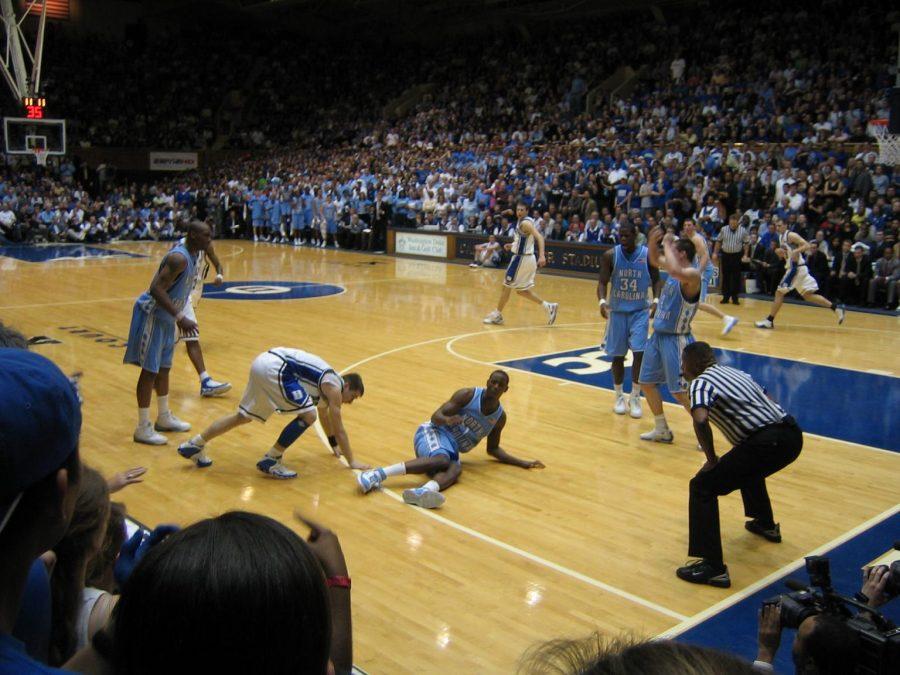The price of paying college athletes
Undoubtedly a profitable team, UNC Men’s Basketball brings in the dollars to TV revenue. In 2009, UNC’s basketball team was worth 25.9 million dollars; such revenue urges people to advocate for the paying of college athletes.
March 18, 2017
Scrolling through my Twitter feed one day, I stumbled upon a thread of conversations encircling the idea of paying college athletes from which I developed a question: should we be paying athletes at the college level? The idea sounds rewarding, but coming up with a plan to equally pay college athletes without pissing off millennials and non-sports fans might exhibit a few setbacks.
For starters, NCAA defends its policies on paying college athletes because these athletes are often on full scholarships that cover tuition, accommodations, fees, and meals–which is just a polite way of telling college athletes not to be greedy. However, to excuse a counter argument to this issue would be absurd. Billions of dollars are paid for television rights to watch college basketball’s March Madness games, making most NCAA revenue to come from a $10.8 billion, fourteen year agreement with CBS Sports and Turner Broadcasting for rights to the Division I Men’s Basketball Championship. Teams that bring in such revenue have a reasonable argument for being paid. However, only teams with the highest revenue would then be paid; this leaves sports such as golf, gymnastics, swimming, etc, out of the loop.
There is no question that (if) at any time college athletes are to be paid there will be disputes over the distribution of money. More importantly, how is anyone supposed to address that issue when equal pay among professional athletes is still in debate? For example, the U.S. Women’s National Soccer Team still is not paid the same as the men’s. The gender gap is also present in college athletics; the women’s share of most college athletic budgets is only 30% even under the Title IX Law, mandating equal access to school services. Whether in favor of paying college athletes or not, most all can agree that administering such a practice would have to be postponed until the issue of equal service is resolved.
Those advocating for college pay are mainly those who do not play on a college sports team, but rather who feel state or nationalistic pride out of promoting something that has brought the country together for centuries. This provides a bias towards such sports leaving, again, many sports to be without pay due to lack of “importance.”
Senior Jalen Graham believes athletes should be paid “because they generate millions for a school and all they ask for is some money for personal expenses.” However, as stated earlier, most promising athletes are eligible for a full-ride scholarship, leaving them without the burden of heavy student loans. Unfortunately, colleges do have limits for the amount of full scholarships given out, leaving athletes without a full-ride stuck with the rest of the student population: in dept.
While athletes work extremely hard to be the best, playing college level is the last step of their journey before going pro. If athletes were paid, many would be playing for the money, not necessarily the team. One of the rewards of making it professionally is making millions of dollars; similar to scholars who attend schools on a scholarship, they do not get paid for being a genius. Instead, they work hard so that later in life they can advance financially with a well-paying job.
The last problem with paying college athletes is how universities will inherit the money for them to be paid. Assembling billions of dollars is not easy, especially when universities all over would also need that money. Nevertheless, college athletes undoubtedly work extremely hard to make it big, and their effort and contribution to America’s economy and entertainment industry does not go unrecognized.












